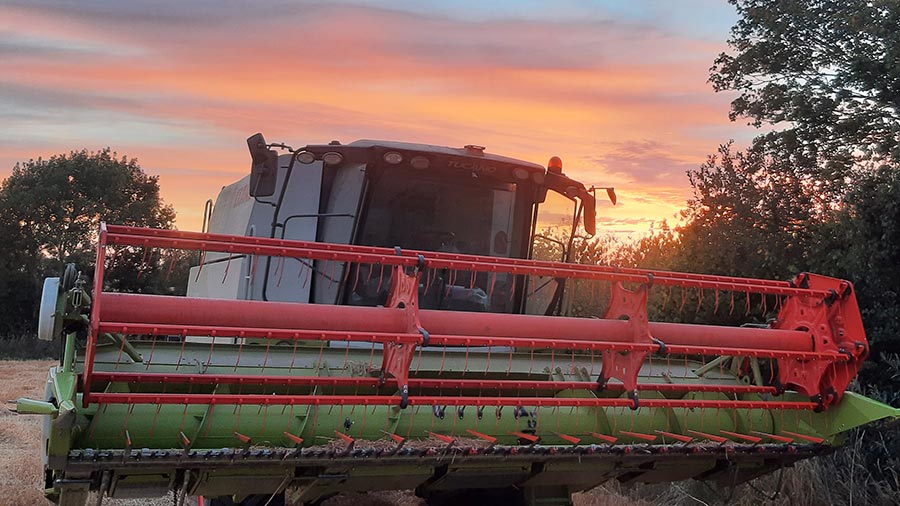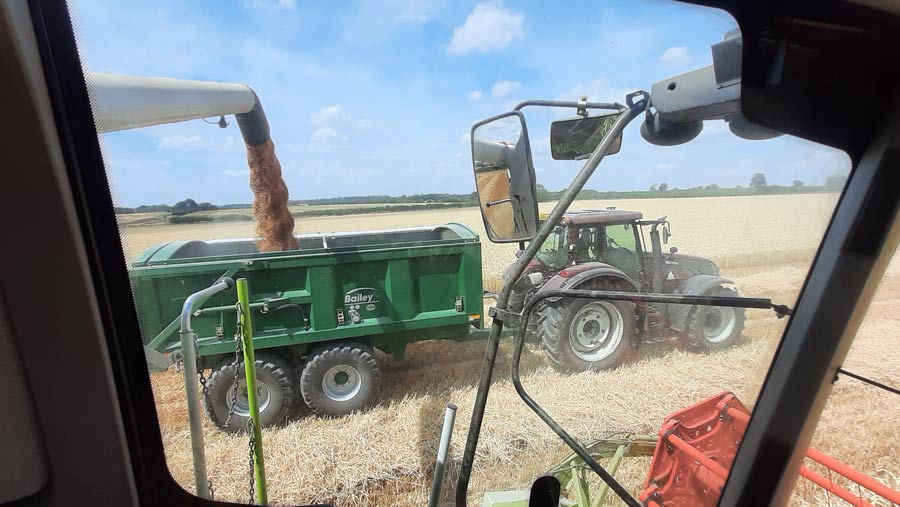Harvest over in record-breaking finish for Norfolk grower
 © David Hillier
© David Hillier Harvest was completely finished in record-breaking time on 28 July at David Hillier’s arable and pig farm in Norfolk, where he grows winter barley, oilseed rape, peas and wheat.
Cutting started nearly two weeks early on 8 July and within 20 days Mr Hillier’s 140ha area of combinable crops at Leys Farm, near Dereham, had been harvested.
Pea and wheat harvest would usually begin around 5 August and continue into late August, but such dry conditions meant harvest was complete at the end of July.
See also: Harvest 2022: Season starts to wrap up for some growers
“After a phenomenally dry last few months we were praying for rain. Crops had really suffered and with such an early start we were worried yields would be sufficiently down as crops burnt off.
However, we were pleasantly surprised and relieved with how crops performed. Yields were below our five-year farm average, but not by much,” he says.

David Hillier © David Hillier
Pleasantly surprising yields
Mr Hillier notes the only logical explanation for the surprise yields given the severe lack of rain was the fact that crops developed a large root system over the dry winter in order to reach vital water and nutrients deep within the soil profile.
This meant that when the drought hit, the large root systems were already in place to help crops survive the dry conditions. “If the weather had suddenly turned from a wet winter to a dry spring, crops may not have been so tolerant,” he says.
Overall, his winter barley variety, Tardis, performed well at 9t/ha. Crusoe milling wheat came in at a similar weight, down on the farm average of 9.5t/ha, at a moisture of 12.5%. Specific weight performed well at 83kg/hl, but protein contents struggled with variable levels of 12-14%.

© David Hillier
Cracking on
“We cracked on with harvest as we could begin cutting early in the morning, because there was no wet, damp dew on crops. However, we weren’t in a mad rush to get harvest complete and we didn’t use the grain dryer at all.”
Oilseed rape and peas both came in about 3.5t/ha. “The peas were noticeably smaller, as dry conditions never gave the pod a chance to fully develop.”
Straw yields were plentiful and will be used on-farm in the bed and breakfast pig unit, which fattens more than 5,000 pigs a year.
With harvest now complete, attention turns to the pig enterprise before oilseed rape drilling at the end of August and September.
Conditions are currently too dry for drilling, but Mr Hillier remains hopeful that there is plenty of time for a good shower of rain before drilling commences.

